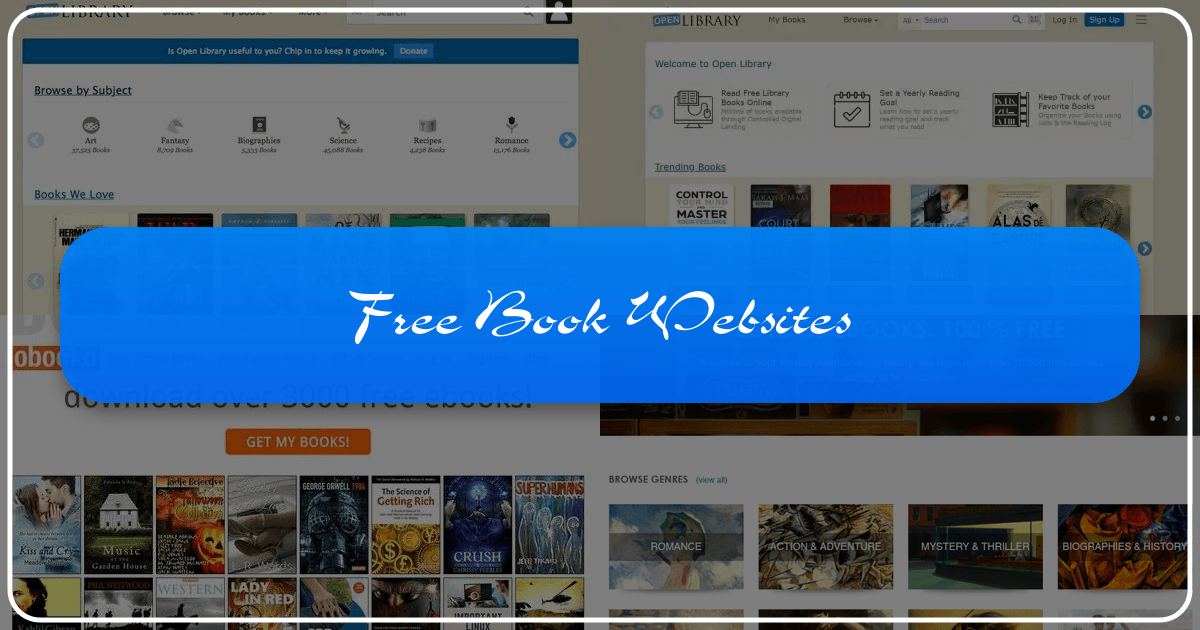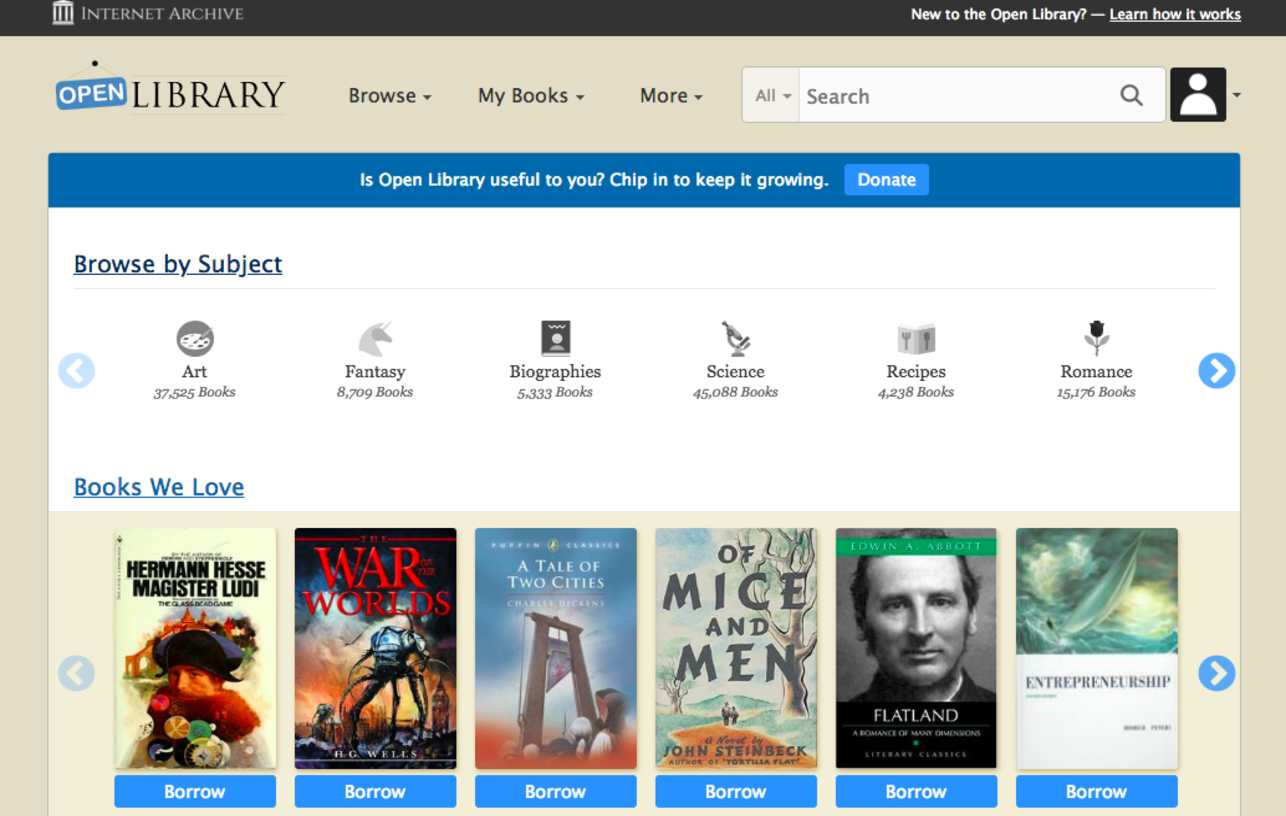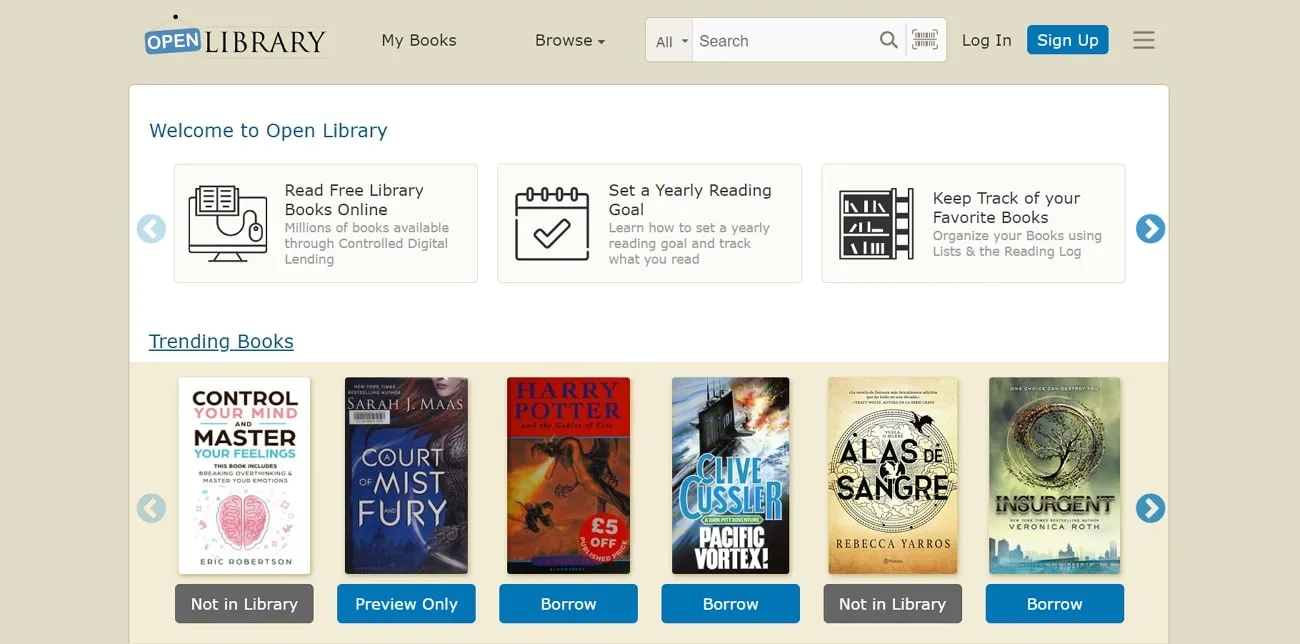Free Book Websites: A Comprehensive Guide to Legally Accessing Free Ebooks and Audiobooks

The internet has opened up a world of possibilities, and among them is the incredible accessibility of free books. Gone are the days of solely relying on physical libraries or purchasing every book you want to read. Numerous websites offer a vast collection of free ebooks and audiobooks, legally and readily available for download or online reading. This comprehensive guide explores the best free book websites, categorizing them by their strengths and offering insights into the broader landscape of online literary resources. We will examine different platforms, focusing on their collections, usability, and the legal implications of accessing their content.

Exploring the Landscape of Free Book Websites
Before diving into specific websites, it’s important to understand the legal framework behind free book availability. Many books become free due to copyright expiration (entering the public domain) or through Creative Commons licensing, where authors grant permission for distribution under certain conditions. Understanding these legal bases ensures that you’re accessing books legally and ethically.
The websites offering free books typically fall under several categories:
- Public Domain Libraries: These websites host books whose copyrights have expired, making them free for anyone to access and distribute. This is a treasure trove of classic literature and historical texts.
- Creative Commons Libraries: These platforms feature books licensed under Creative Commons, allowing authors to specify the terms of use, such as attribution requirements or restrictions on commercial use.
- Author-Specific Websites: Some authors offer their work for free download on their personal websites or blogs.
- Digital Libraries: Established libraries and archives may offer digital versions of their collections, some of which are free to access.
- Specialized Collections: Some websites focus on specific genres, topics, or formats (like audiobooks), providing a curated selection within a niche.
This diversity provides a rich landscape of options, catering to every reader’s interests and preferences. However, navigating this landscape requires discernment, ensuring you’re selecting trustworthy and legally compliant sources.
Top Free Book Websites: A Detailed Overview
This section delves into some of the most popular and reputable free book websites, highlighting their strengths and weaknesses.
1. Project Gutenberg
Project Gutenberg is a venerable institution in the world of digital literature. Established in 1971, it remains one of the oldest and most extensive online libraries of public domain books. Its massive collection, exceeding 75,000 titles, covers a wide range of genres, including classics, historical texts, and more.
Pros:
- Massive collection of public domain books
- Easy-to-navigate website
- Multiple download formats (ePub, Kindle, plain text, etc.)
- Reliable and well-established resource
Cons:
- Primarily focuses on older books
- Limited selection of contemporary works
2. ManyBooks
ManyBooks offers a compelling blend of public domain and Creative Commons licensed books, boasting a collection exceeding 50,000 titles. Its user-friendly interface makes browsing and searching a breeze, and the availability of multiple download formats ensures compatibility with a variety of devices.
Pros:
- Wide variety of genres and languages
- User-friendly interface
- Multiple download formats (ePub, PDF, Kindle, etc.)
- Mix of classic and contemporary works
Cons:
- Requires a free account to download books
- Some books may be available for purchase
3. Open Library
As a project of the Internet Archive, Open Library leverages a vast database of books, providing access to millions of titles. It’s a powerful search engine for locating specific books, even if you only remember a line from the book.
Pros:
- Access to a massive library of books
- Powerful search functionality
- Multiple download formats (depending on book availability)
Cons:
- Interface can be overwhelming
- Not all books are freely available for download (some are only available for borrowing)
4. LibriVox
For audiobook enthusiasts, LibriVox is a remarkable resource. This entirely volunteer-run project offers a large collection of public domain audiobooks, read by volunteers from across the globe. While the quality of narration may vary, the sheer volume of titles makes it a significant asset for audiobook lovers.
Pros:
- Large collection of public domain audiobooks
- Free to access and download
- A unique volunteer-driven model
Cons:
- Audio quality can be inconsistent
- Limited selection of newer titles
5. Internet Archive
The Internet Archive is a massive digital library encompassing far more than just books. Its ebook collection is vast, covering a wide spectrum of subjects and genres. While not solely dedicated to free ebooks, a substantial portion of its collection is available for free download or online reading.
Pros:
- Enormous collection of digital materials, including ebooks
- Multiple download formats
- A comprehensive resource for researchers and casual readers
Cons:
- Can be overwhelming to navigate
- Not exclusively focused on ebooks
6. Google Books
Google Books is another giant in the digital library space. While not all books are free, a substantial portion of the collection consists of books in the public domain. Its search function is exceptionally powerful, allowing for easy discovery of free titles.
Pros:
- Powerful search functionality
- Integration with other Google services
- Access to many public domain books
Cons:
- Not all books are free
- Preview availability can vary
Beyond the Websites: Enhancing Your Reading Experience
While free book websites provide access to a wealth of literary resources, several factors can enhance your reading experience.
- E-readers and Reading Apps: Using a dedicated e-reader or reading app significantly improves the comfort and convenience of reading ebooks. Features like adjustable font sizes, brightness controls, and offline reading capabilities enhance the experience. Popular e-reader apps include Kindle, Kobo, and Google Play Books.
- Organizing Your Collection: As your digital library expands, effective organization becomes crucial. Consider creating a system for categorizing and tagging your ebooks, making it easier to locate specific titles.
- Exploring Different Formats: Different ebook formats (ePub, PDF, MOBI, etc.) offer varying levels of functionality and compatibility with different devices. Experimenting with different formats can help you find the best one for your needs.
Conclusion: Embracing the World of Free Books
The world of free books online is vibrant and constantly evolving. This guide provides a starting point for exploring the many resources available. Remember to always check the licensing terms of any book you download or read online to ensure you’re adhering to the author’s or publisher’s wishes. With a bit of exploration and the right tools, you can unlock a vast collection of literary treasures, enriching your reading experience without breaking the bank.
